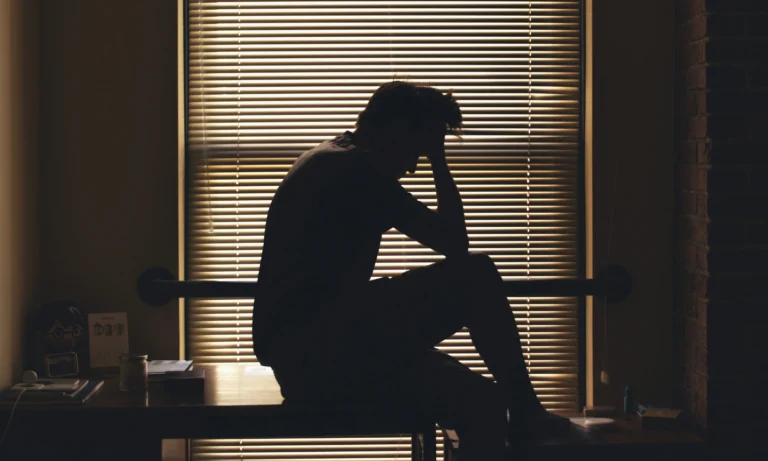Table of Contents
When you’re in your 20s, you should be figuring out your career, relationships, and independence, not dealing with your parents’ divorce. However, for many adult children, this unexpected transition has serious consequences for their identity, family, and home. If you’ve found yourself quietly grieving, doubting your views about love, or wondering why this hurts even if you’re “grown,” this piece is for you.
Why Divorce in Your 20s Hits Differently
Unlike childhood divorces, which involve custody battles and school adjustments, adult children are typically left with mental turmoil that goes unnoticed. There are no mandatory treatment sessions or family court hurdles. Simply the silent disintegration of a world you thought was stable.
One Reddit member wrote, “It’s a strange feeling to watch your parents no longer be together.” It is sad; it feels like a huge loss, even though they are still in your life. “It is not the same.” As explored in this Psychology Today piece on adult children of divorce
You’re forced to reconsider everything—your childhood, your relationship goals, and even your feelings of “home.” Coping with your parents’ divorce at the age of 20 is about emotional dislocation rather than physical interruption.
Common Emotional Struggles
Identity Crisis
For most of us, our parents are the model for how life is “supposed” to be. We grow up observing their routines, absorbing their ideals, and—consciously or unconsciously—using their relationship to shape our understanding of love, security, and adulthood. So when that structure falls in your twenties, just as you’re developing your autonomous identity, it can feel like a fundamental part of yourself is being called into question.
You may wonder what a healthy relationship entails if there is not one.
Were my childhood memories accurate, or were they a ruse to conceal a failing marriage?
- If my beliefs were built on their partnership, who am I now that it has ended?
Adult children of divorce frequently feel as if they are “meeting” their parents for the first time after the divorce, unfiltered and independent from the roles they play as a unit.
“We prefer to conceive of adulthood as this stable stage. But the truth is that when your parents’ marriage ends, it feels like a chapter in your own story ends as well.
This bewilderment is more than simply academic; it is also emotional. Some describe it as a quiet grieving, not only for the familial unit but also for a version of themselves that they believed was rooted in something permanent. That version is now changing. A clinical psychologist explains how divorce can affect a child’s identity
You may feel disconnected from your history, reliving childhood images, holidays, or family customs, only to realize they no longer hold the same significance. You begin to reinterpret your childhood, sometimes wondering whether there were indications you missed or truths kept secret “for your sake.”
“The slogans you grew up with, such as ‘family is forever,’ suddenly cease to make sense. And as your worldview is challenged, so is your sense of self.”
This isn’t only about changing your identity. It’s an identity crisis, and it can take time to recreate who you are apart from your parents’ story.
I reflect more deeply on this unraveling in How My Parents’ Divorce Shaped Me, a personal story of redefining home and love as an adult.
Relationship Anxiety
If your parents’ marriage formed your sense of love, witnessing its dissolution can damage your faith in your ability to create long-term, healthy partnerships.
You may question if you’ll replicate their blunders.
Was their love real, and if so, why didn’t it last?
How will I know whether my connection is secure or whether I’m deceiving myself?
Many adult children living with their parents’ divorce report experiencing sudden bouts of terror in their relationships. A simple disagreement with a partner can elicit concerns of abandonment. Milestones like engagement and moving in together may cause more fear than excitement.
One commenter remarked, “I used to feel fairly secure with my boyfriend. But after my parents split up, I started noticing everything—every silence, every quarrel. “Suddenly, I wasn’t sure if any love could last.”
Others have what therapists call hypervigilance in intimacy—the belief that you must do everything correctly to avoid becoming like your parents. When confronted with conflict, this can result in overthinking, self-blame, or emotional disengagement.
There is also a subliminal pressure to “be the cycle-breaker”—to model the good relationship that your parents did not have. While laudable, achieving that aim can be exhausting if you’re still figuring things out for yourself.
“I know I want to be a good partner and parent—but it feels like I need to reframe how I thought those things were supposed to be.”

Many adult children weathering divorce as 20-somethings find themselves in this tension between dread and hope: frightened to follow in their parents’ footsteps, but unsure how to forge their own.
The good news? These difficulties do not imply that you are broken; rather, they demonstrate that you are aware of what is important. And with the correct tools, assistance, and time, it is possible to create something healthier.
Practical ways to cope
When you manage the emotional impacts of divorced parents as an adult, you are not dealing with custody battles or supervised visits; instead, you are carrying a silent, often invisible emotional strain. These ideas are not intended to fix your parents. They’re about keeping your calm while you work through the changes in your family’s foundation.
Setting Boundaries
One of the most neglected obstacles while dealing with parental divorce at the age of 20 is emotional role reversal. Without intending to, your parents may rely on you to vent, seek comfort, or obtain compassion. While it is normal to want to be supportive, you are not their therapist, and taking a step back does not mean you are failing them.
For more emotional lessons and healing tools, see My Parents Are Divorcing: 5 Lessons That Helped Me Heal.
What healthy boundaries can sound like:
- “I love you and want the best for you, but I’m not in a place to be your sounding board.”
- “I think this is something best talked about with a therapist, not with me.”
- “I’m not comfortable hearing about what the other parent did—please respect that.”
Setting boundaries may initially appear selfish or chilly. But limits aren’t punishments; they’re protective containers for your recovery.
“I had to hang up on my father once because he refused to stop criticizing my mother. It hurt—but it offered me the space I sorely needed.
Boundaries allow for respectful, long-term relationships with both parents, where love does not come at the expense of your mental health.

Managing Holidays
Nobody warns you about how logistically and emotionally complicated holidays maybe after a divorce. Suddenly, the traditions you once took for granted—who carves the turkey, where you open presents—are shattered.
Instead of attempting to recreate the past, allow yourself to reinvent.
One reviewer wrote, “Rather than forcing a strained family meal, my partner and I spent the day on a winter hike.” It wasn’t what I was used to, yet it brought me serenity.
Questions to ask yourself:
- What kind of holiday would be relaxing or restorative this year?
- Who gives me comfort?
- What traditions am I ready to discard—or rewrite?
Rewriting your holiday experience is not a sign of disloyalty; rather, it demonstrates emotional growth. Redefining family time in your twenties after a divorce is part of learning to preserve your well-being.
Handling Parents’ New Partners
Watching your parents date again, especially if they do so rapidly, can leave you feeling betrayed, confused, or even protective. These reactions are normal. It does not imply immaturity; rather, it indicates emotional awareness.
It’s OK to:
- Feel uncomfortable or emotionally disconnected.
- Set your speed while meeting a new spouse.
- Say “not yet” to blended families and shared holidays.
Don’t force the relationship. Allow it to happen in your own time.
“I understood I could make my father happy without pretending to like his fiancée straight immediately. That allowed me to process without guilt.”
Building a Stronger Future
Parents’ Divorce in adulthood frequently requires us to look inward, whether we are ready or not. Many adult offspring of divorce find insight in this difficult area.
Here is what healing can look like:
- Naming your needs: Emotional security, open communication, and autonomy.
- Building resilience: Therapy, exercise, journaling, and artistic expression can serve as anchors.
- Healthy love is defined as a bond built on honesty and effort, not perfection.
Try This:
Write three lessons your parents’ divorce taught you, and how you intend to apply or amend them in your relationships.
When to Seek Therapy
If you are feeling overwhelmed, locked in grief, or emotionally worn out, therapy is not only beneficial but also required. Adult children living with their parent’s divorce in their twenties frequently experience quiet anguish, perplexity, and humiliation. You don’t have to do it alone.
Signs You Might Need Therapy:
- You feel responsible for your parents’ pleasure.
- You are avoiding your relationships.
- Your work, sleep, and daily life are suffering.
Therapists trained in adult family dynamics can assist you:
- Disentangle emotional enmeshment
- Rebuild emotional independence.
- Handle identity loss and relationship anxiety.
Group therapy, support circles, and reading other people’s memoirs can all be very helpful. Simply knowing you’re not alone changes everything.
“You do not need to be mended. You need space to analyze, grieve, and rebuild.”
Find a licensed therapist near you through GoodTherapy.

Gentle Reminders
- You may lament a version of your family that no longer exists.
- You can love your parents deeply while simultaneously being harmed by their actions.
- It is not your responsibility to rebuild their relationship.
- You are not weak in asking for help. You are human.
Let therapy be where you lay down what you’ve been carrying and begin to grow something new.
If this resonated with you, check out “My Parents Are Divorcing: 5 Lessons That Helped Me Heal“. — A personal essay about dealing with emotions and setting boundaries as an adult child of divorce.




